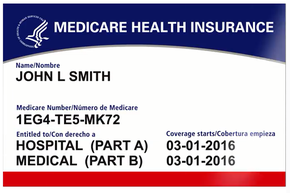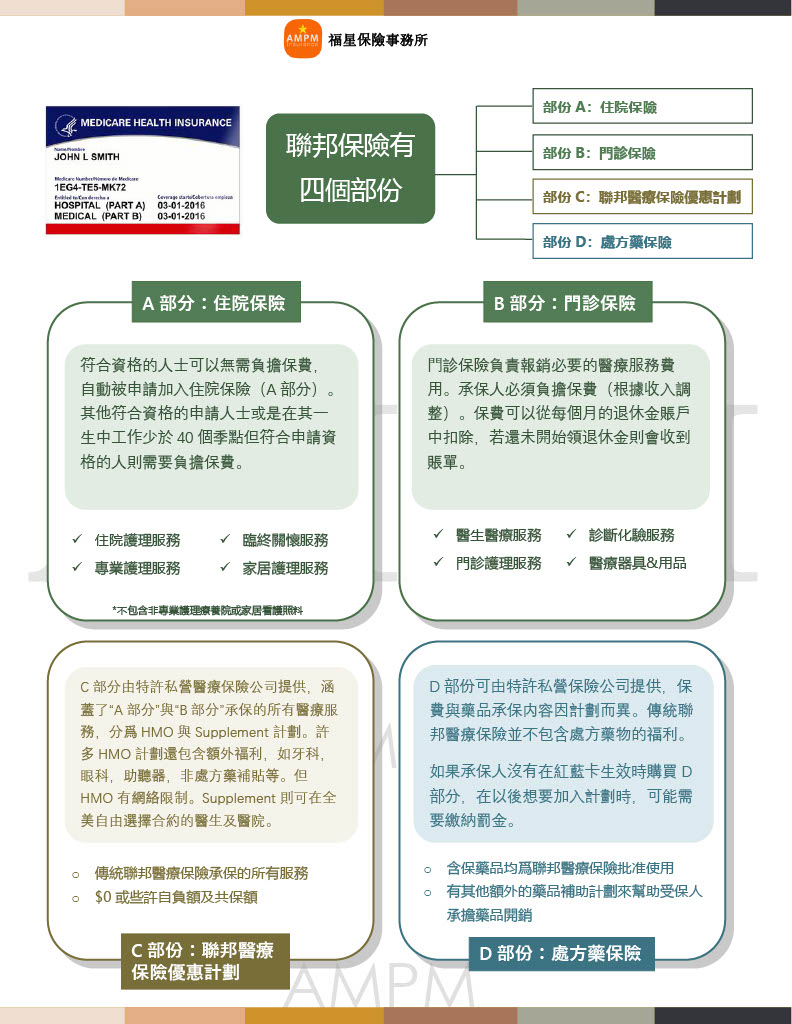What is Medicare?

Medicare is the federal government program that provides health care coverage (health insurance) if you are 65+, under 65 and receiving Social Security Disability Insurance (SSDI) for a certain amount of time, or under 65 and with End-Stage Renal Disease (ESRD).
>> Learn more about Medicare

What is Part A?
In general, Part A covers:
-Inpatient care in a hospital
-Skilled nursing facility care
-Nursing home care (inpatient care in a skilled nursing facility that’s not custodial or long-term care)
-Hospice care
-Home health care
What is Part B?
Medically necessary services: Services or supplies that are needed to diagnose or treat your medical condition and that meet accepted standards of medical practice.
Preventive services: Health care to prevent illness (like the flu) or detect it at an early stage, when treatment is most likely to work best.
What Medicare health plans cover?
Generally, a Medicare health plan is offered by a private company that contracts with Medicare to provide Medicare Part A (Hospital Insurance) and Medicare Part B (Medical Insurance) benefits to people who enroll in the plan.
Medicare health plans include:
-Medicare Advantage Plans
-Other Medicare health plans
>>>Medicare Cost Plans
>>>Demonstrations/Pilot Programs
>>>Programs of All-inclusive Care for the Elderly (PACE)
>>>Medication Therapy Management (MTM) programs for complex health needs
What’s not covered by Part A u0026amp; Part B?
Medicare doesn’t cover everything. Some of the items and services Medicare doesn’t cover include:
-Long-term care (also called custodial care )
-Most dental care
-Eye exams related to prescribing glasses
-Dentures
-Cosmetic surgery
-Acupuncture
-Hearing aids and exams for fitting them
-Routine foot care
What is Part D (Drug Coverage)?
Most Medicare drug plans (Medicare Prescription Drug Plans and Medicare Advantage Plans with prescription drug coverage) have their own list of what drugs are covered, called a formulary. Plans include both brand-name prescription drugs and generic drug coverage. The formulary includes at least 2 drugs in the most commonly prescribed categories and classes. This helps make sure that people with different medical conditions can get the prescription drugs they need. All Medicare drug plans generally must cover at least 2 drugs per drug category, but plans can choose which drugs covered by Part D they will offer.
You need to know about Medical:

